M’sian coffee chain Koppiku joins the matcha hype with limited-time drinks, we tried them all
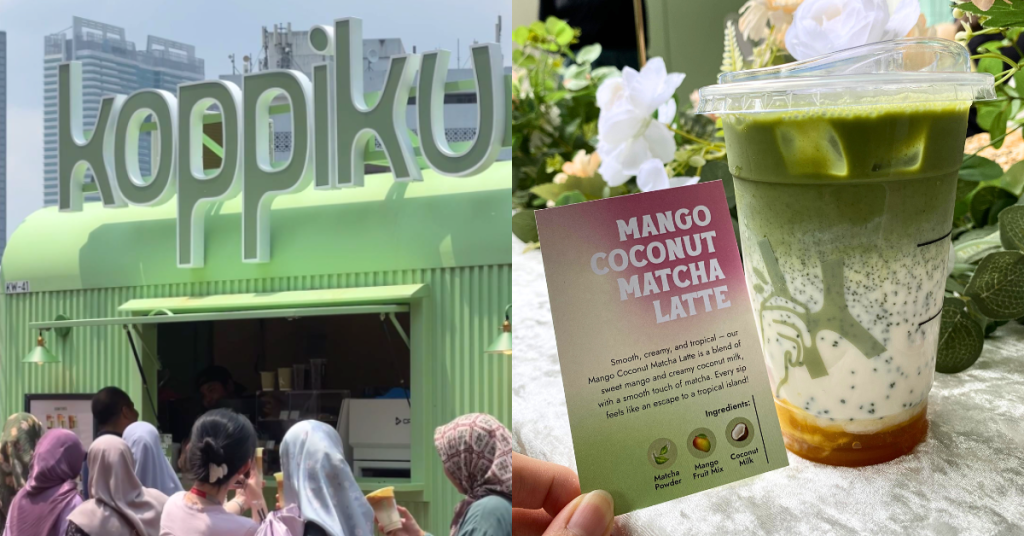
[Written in partnership with Koppiku, but the editorial team had full control over the content.]
If you’re a caffeine-enthusiast, you’ve probably heard of Koppiku, or at least seen its pastel green kiosks around the Klang Valley.
Sporting an airstream-inspired design, the startup has been making a name for itself as a go-to spot for quality, on-the-move refreshments. And just as its name suggests, Koppiku’s core offering is coffee-based drinks.
More recently, though, customers have been returning for a different kind of beverage—Matcha Latte. It has quickly risen to become one of the brand’s bestsellers in Koppiku’s 14 months of operating.
To ride the wave of demand they identified, they just released a limited-time matcha series featuring specially crafted beverages.
Keeping quality drinks accessible & affordable
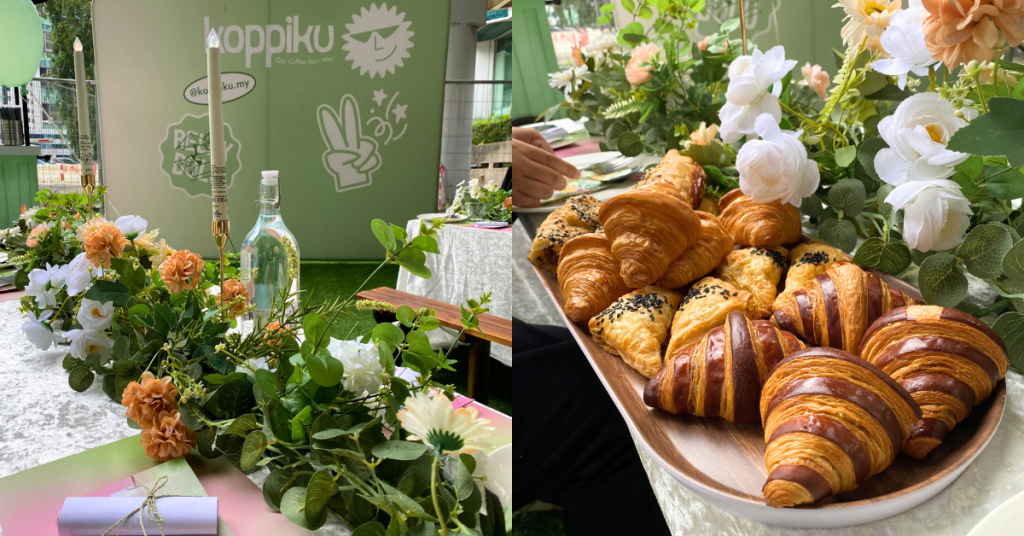
In celebration of Koppiku’s first special drinks series, we were invited to an intimate “Matcha Dreams Picnic” at its first train station kiosk, Raja Chulan Monorail.
It’s a short walk away from offices around the area and seems like a convenient spot to get your caffeine dose. Sure enough, I saw a decent morning crowd queuing up for their drinks.
From this, I could see how Koppiku tries to achieve its mission of being accessible to the public, both in terms of location and cost.
You see, a highlight of the brand is that all its drinks are priced between RM5.00 to RM10.90. “I think that sets us apart,” Dr Rajiv Bhanot, Koppiku’s CEO and founder, candidly shared.
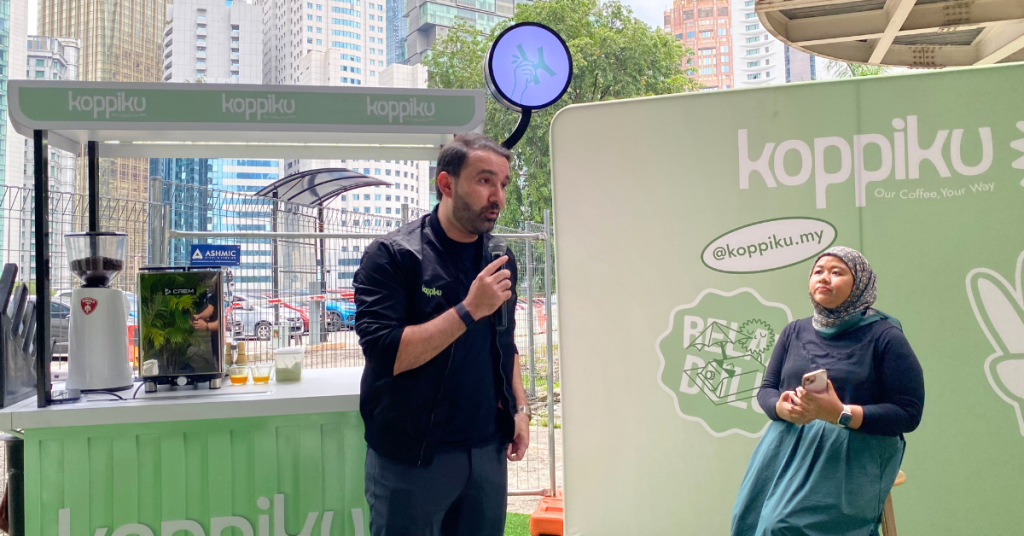
“Specialty barista-pulled coffee was always a luxury. I ingat masa zaman kecil growing up in Subang, I would pass by all these top coffee brands and say, ‘Wow, it’s aspirational but I can’t afford it.’” This is a large factor that inspired the team to start Koppiku.
Shortly after its matcha latte rose in popularity, the brand decided to be a drink innovation company. “We want to start introducing new drinks based on what our consumers and customers like.”
That’s how this limited-time matcha series came about with its three new beverages—Mango Coconut Matcha Latte, Dirty Matcha, and Ginger Calamansi Matcha.
This is what matcha dreams are made of
The drinks certainly sound creative, but how do they taste, exactly?
I’m a big fan of calamansi (limau kasturi in Malay) and also adore matcha, but combining them together seemed like a stretch. Adding ginger into the mix makes it sound like the oddest one out of the three. It shouldn’t work because you’re combining tastes of sour, bitter, and spice.
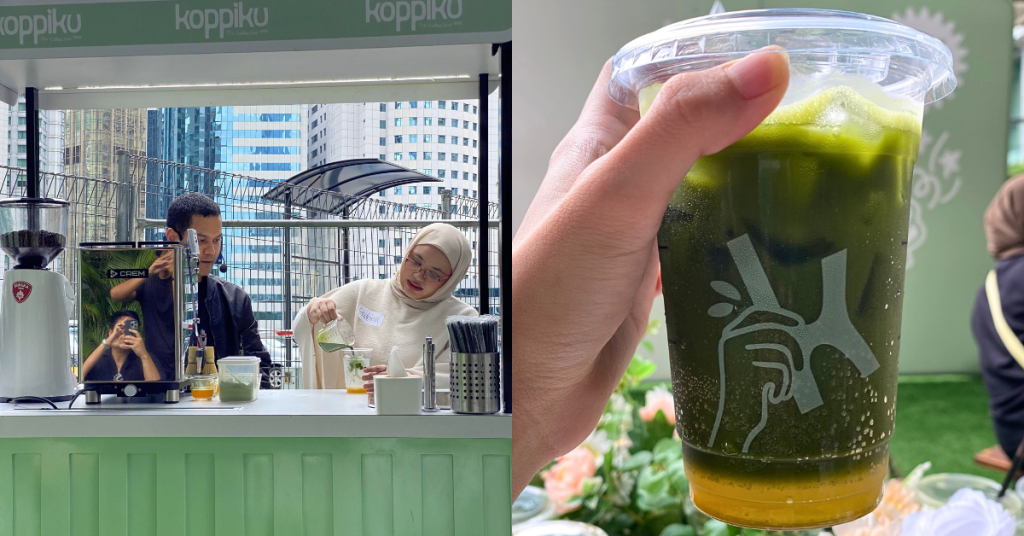
Yet, it was the most refreshing and interesting drink, at least in my opinion. The tonic water gave it a kick that makes Koppiku’s Ginger Calamansi Matcha (RM9.90 for regular, RM11.90 for large) a good pick-me-up drink for when you’re sick of lattes.
Sweet-tooths would probably enjoy Koppiku’s Mango Coconut Matcha Latte (RM9.90 for regular, RM11.90 for large). Or as I like to call it, mango sticky rice pudding in a cup because that’s exactly what it tastes like.
In lieu of regular milk, this latte uses coconut milk to give it a tropical taste. This paired with mango fruit mix and the mildly bitter matcha powder balances out the creaminess of the coconut milk.
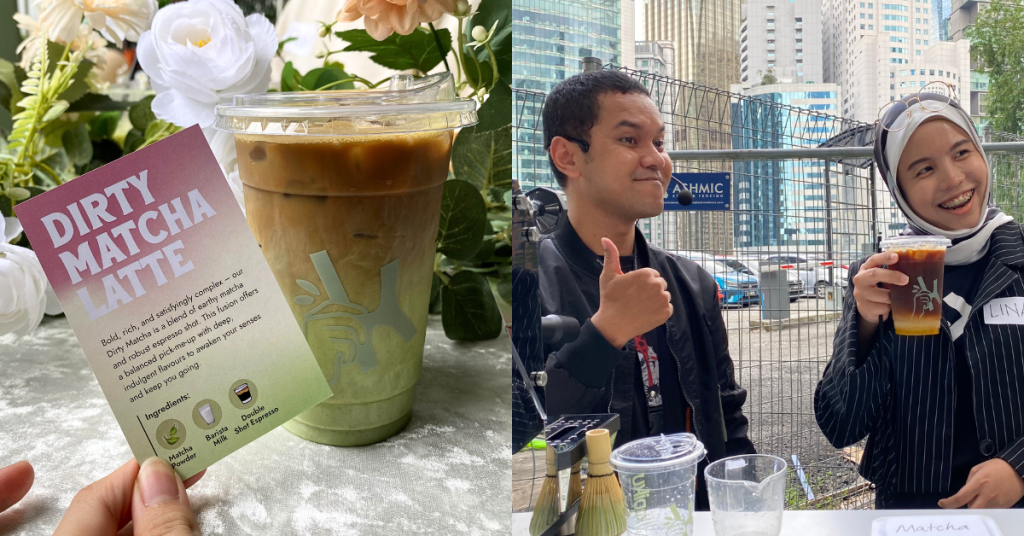
Those who still want their coffee fix should try Koppiku’s Dirty Matcha Latte (RM8.50 for regular, RM10.50 for large). I’ll admit that I’m not the biggest coffee lover, but I can acknowledge how the flavours went well together and the double espresso shot helped keep me productive all day long.
The last drink in the series is Koppiku’s best-selling Matcha Latte, which is priced at RM7.50 for regular and RM9.50 for large cups.
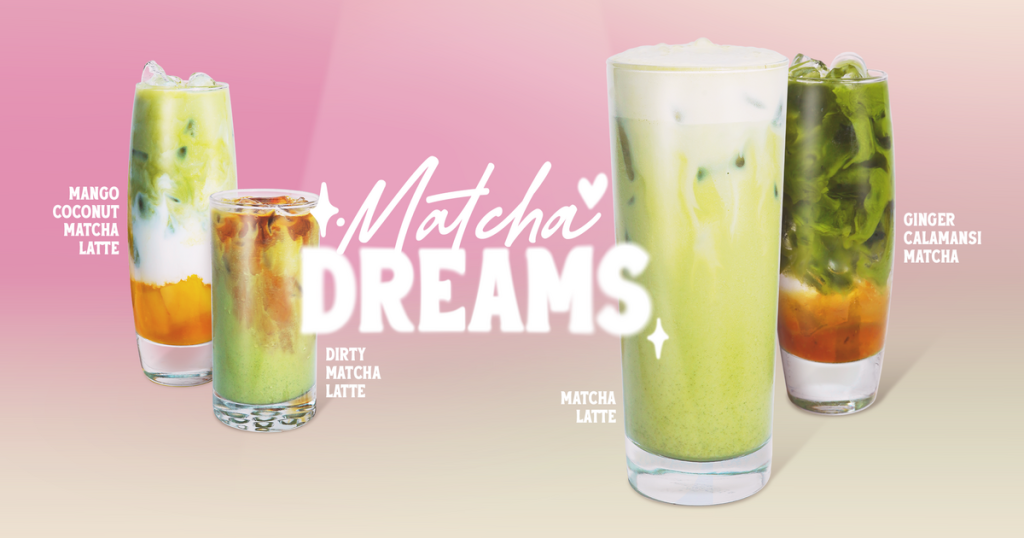
Quality drinks for all Malaysians, everywhere
Only slightly over a year old, Koppiku has been steadily establishing its presence in Malaysia and has over 40 outlets now, and they’re not done growing yet.
“If we go by the flow of where we are, we will end the year with 53 Koppiku locations,” Dr Rajiv stated. He happily shared that they’re finally expanding outside of the Klang Valley, with three new outlets to open in Pahang this November.
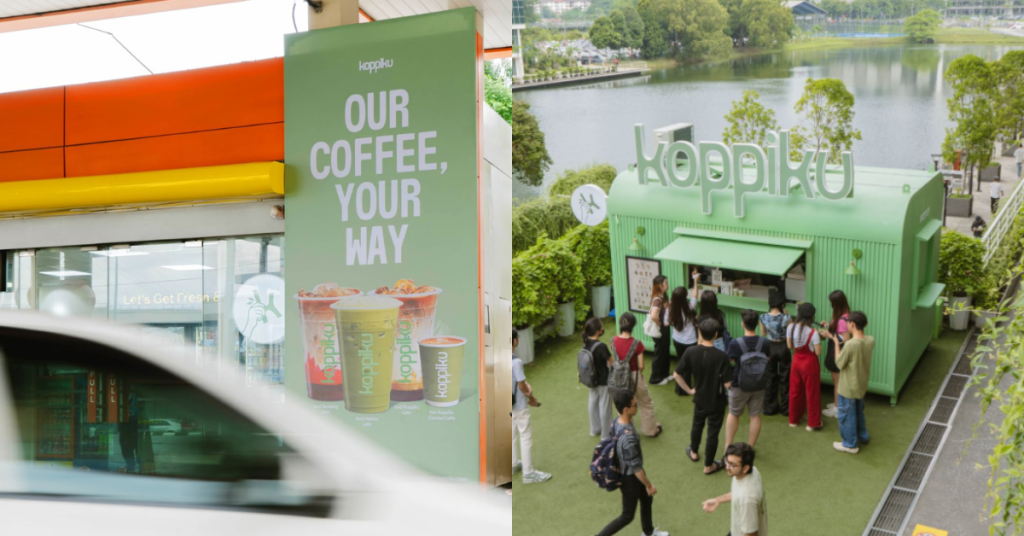
Dr Rajiv explained that the goal is to bring Koppiku all over the country. Aside from train stations, customers can also find the brand in malls, some BHP petrol stations, and even a couple of universities.
“Specialty coffee should be accessible. Tak kisah if you’re a CEO of an organisation, a university student, a person heading to the office in the morning, [or] a housewife that’s just got done with chores. We want to be affordable and accessible to everyone” he elaborated.
Koppiku’s limited-time matcha series is currently available from now until November 24, 2024, so we recommend grabbing a cup before they disappear.
Also Read: Mega sales are coming up in M’sia, here’s how to ensure that your parcels don’t go missing
Featured Image Credit: Koppiku / Vulcan Post
Are EVs even eco-friendly? We spoke to Malaysia’s ChargeSini to bust 6 common EV myths.
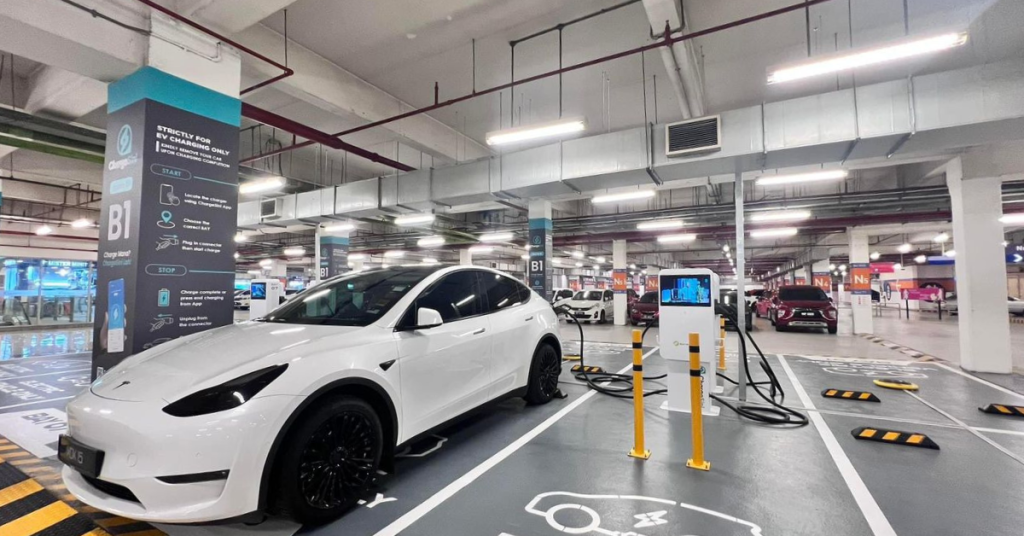
[Written in partnership with ChargeSini, but the editorial team had full control over the content.]
More and more electric vehicles (EVs) can be spotted on Malaysian roads with each passing day, but yet, there are still many myths and misconceptions floating out there about EVs.
I personally have heard a number of these myths being propagated by friends and colleagues.
Speaking to Vulcan Post, ChargeSini shed light on some of these misconceptions that they, as a local charging station operator, have also heard.
Misconception 1: EVs have a limited range in Malaysia
One common fear among potential EV buyers is something called range anxiety.
As the name suggests, it’s the worry that the vehicle will run out of charge before reaching its destination, exacerbated by the concern that Malaysia doesn’t have enough charging points to support EVs.
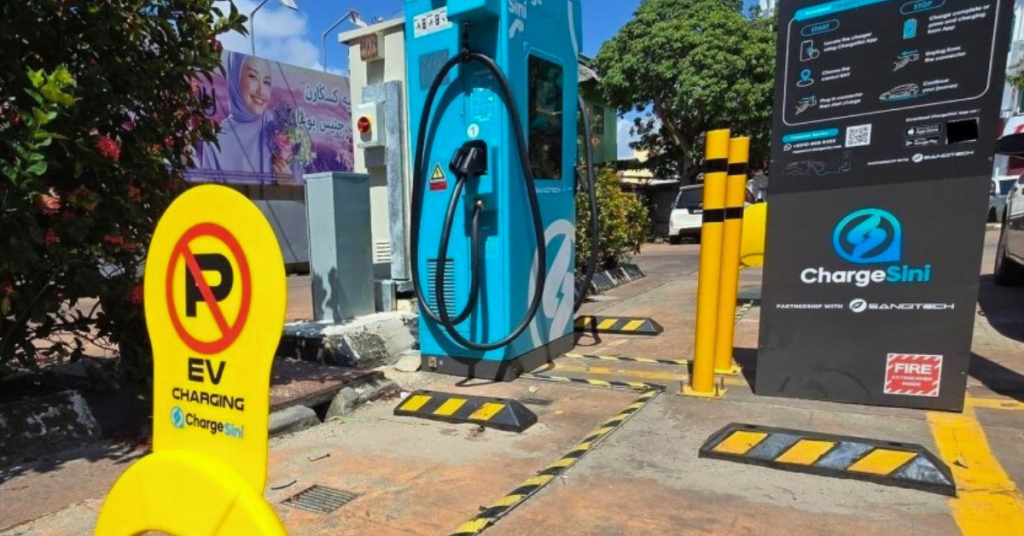
But this isn’t quite true anymore. For instance, local operators like ChargeSini are expanding charging infrastructure across Malaysia, from commercial spots like malls and rest stops to residential areas. Currently, they have 818 chargers nationwide.
If you’re still worried about running out of juice, especially when travelling in more rural areas, it’s important to note that the range of modern EVs is often more than enough for daily commutes or even longer trips.
Many models now offer 300 to 400km per charge. The BYD Seal, for instance, is said to have a range of more than 400km.
Misconception 2: EVs and charging is too costly
Another common thought that people have about EVs is that they are far too expensive, both in terms of purchasing the car and the cost of charging it.
Yes, of course, the initial price tag for an EV can be higher than a traditional internal combustion engine (ICE) vehicle. But when you consider the long-term savings, the math might start to look better.
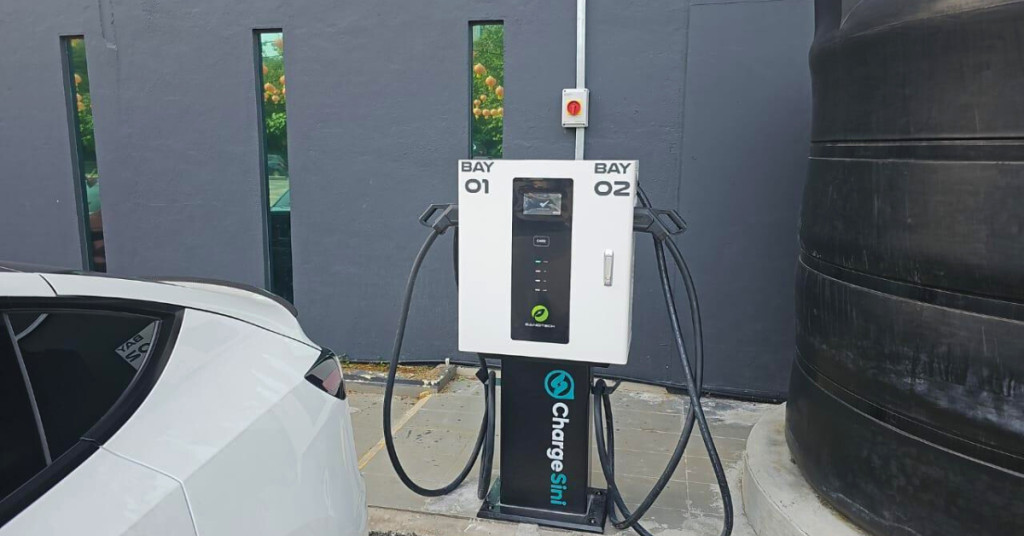
EVs have significantly lower running costs, with no need for petrol, fewer maintenance expenses, and fewer parts to break down. Over time, the savings on fuel and upkeep can more than offset the initial price difference.
Plus, the Malaysian government is offering a range of incentives for EV buyers as part of their ongoing efforts to promote green energy.
Completely built up (CBU) EVs enjoy full import and excise duty exemption up until December 31, 2025. EV owners are also exempt from paying road tax until the end of 2025.
During the recent tabling of Budget 2025, it was also announced that Perodua is working to release an affordable EV vehicle, to be priced under RM100,000.
Misconception 3: Charging a car is too slow
Another concern is slow charging speeds.
To that end, fast chargers are becoming more common. For instance, ChargeSini has powerful chargers that offer up to 180 kW.
Plus, many EV chargers nowadays are placed in convenient locations, enabling drivers to top up their batteries quickly while on the go, such as at malls.
Misconception 4: EVs aren’t that environmentally friendly
This is a misconception that I personally hear a lot.
A lot of people still think EVs aren’t as green as advertised, especially when you factor in the production and disposal of the batteries.
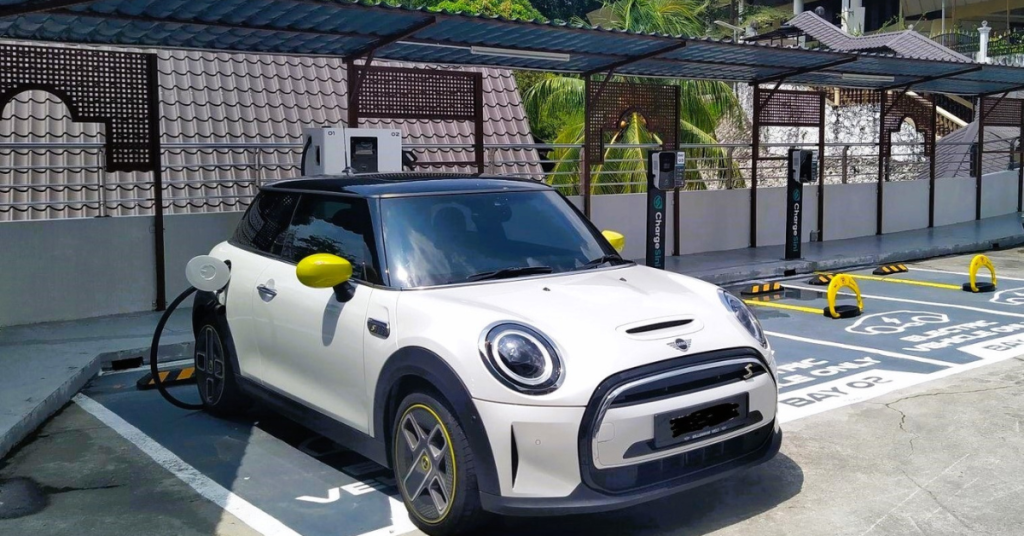
While it’s great that people are thinking critically so as to not be greenwashed, the reality is more nuanced.
It’s true that EVs have a carbon footprint during production, especially with their batteries.
But guess what? Traditional ICE vehicles are worse.
While batteries may do more harm upfront, in the long run, it’s understood that EVs produce far fewer emissions than traditional ICE vehicles.
As the world shifts toward renewable energy sources, it also means that the electricity powering your EV will increasingly come from clean energy.
Hopefully, Malaysia will be able to ensure that EV batteries are recycled or repurposed at the end of their lifecycle, reducing the environmental impact even further.
Misconception 5: EVs are prone to exploding
ChargeSini pointed out that there’s also a widespread fear that EVs or even charging stations are more likely to catch fire or explode because of their batteries.
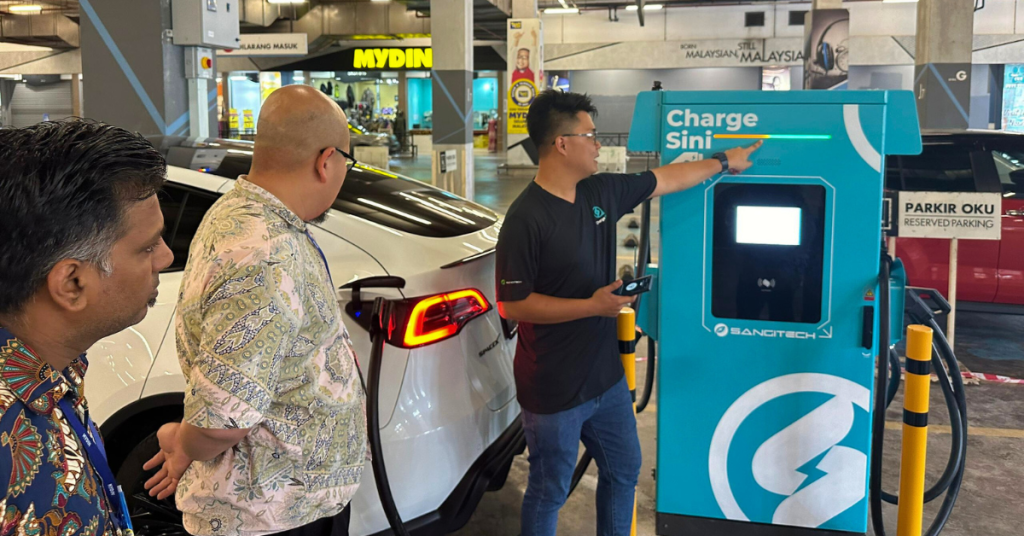
However, this is largely a myth. Just like conventional vehicles, EVs tend to undergo rigorous safety testing before they hit the market. In fact, research shows that the risk of fire in EVs is actually lower than in gasoline-powered vehicles.
As for charging stations, ChargeSini ensures that their charging stations meet the highest safety standards, offering drivers peace of mind as they recharge their vehicles.
Misconception 6: EV batteries don’t last long
Another concern is that EV batteries will degrade quickly, thus requiring costly replacements.
However, many EV manufacturers offer warranties on their batteries. A study by a Canadian company, Geotab, has also shown that battery degradation is slower than many think.
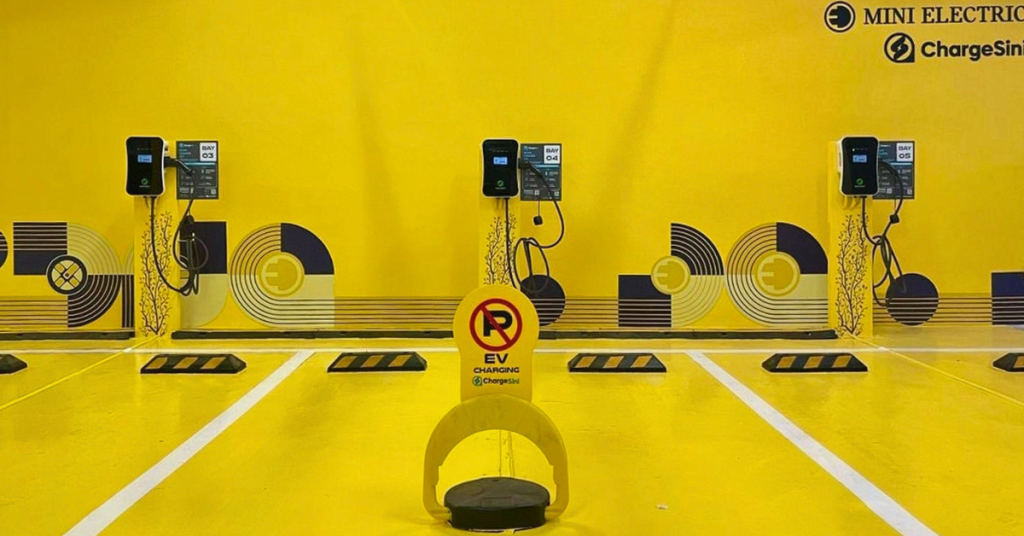
ChargeSini also noted that EV batteries are built to last and are designed to maintain most of their capacity even after several years of use.
With proper care, an EV battery can last rather long, maybe even longer than the vehicle itself.
The future is here
With these misconceptions debunked, hopefully more Malaysians will be open to considering EV cars in the future.
We can’t wait to see more EVs being produced by local car manufacturers like Proton and Perodua, offering Malaysians more affordable and accessible options.
Indeed, there are still a lot of developments within the rapidly growing industry, but the bottom line is that EVs overall offer benefits for your wallet, the environment, and our economy.
Also Read: AI could bring in US$826bil globally by 2030. Here’s why M’sian startups should get on board.
Featured Image Credit: ChargeSini

